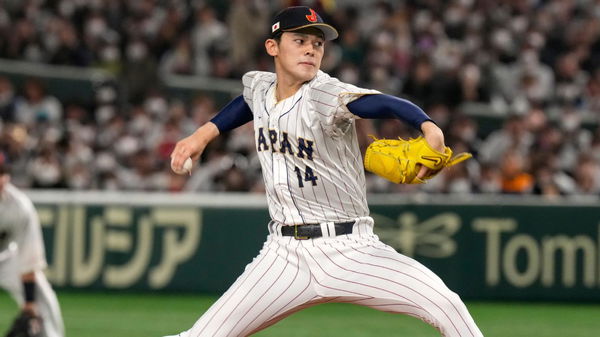

The timing of Roki Sasaki’s posting by the Marines was important; it shifted his eligibility and the terms of his potential signing. Had Sasaki been posted before December 1, he would have been part of the 2024 free agent class, but now the 45-day negotiation window begins after the posting date. Reports have confirmed that Roki Sasaki is to sign with a club as part of the 2025 international signing class, meaning he can’t sign before January 15.
This is significant because teams are unable to sign players between December 15 and January 15, narrowing the window to make a deal. As a player aged 23, Sasaki isn’t eligible for the lucrative deals that his fellow Japanese star, Yoshinobu Yamamoto, secured last year. Instead, he’ll be limited to the international bonus pools, which are typically used to sign amateur players from Latin America.
ADVERTISEMENT
Article continues below this ad
Dodgers lose an advantage over Roki Sasaki signing
The timing of Roki Sasaki’s posting is crucial, especially considering the state of the team’s international bonus pools. According to the MLB commissioner, he expects Sasaki to sign as part of the 2025 international pool. Many clubs, such as the Tampa Bay Rays and Texas Rangers, have already spent their entire 2024 allocations. That leaves them with no funds to sign Sasaki. The San Diego Padres, seen as a significant contender for his services, have only $2,200 remaining in their pool. The Los Angeles Dodgers, who were favorites to land Sasaki, have the most money left with $2.5 million, but they will still be limited by next year’s bonus pool restrictions.
Rob Manfred said that he expects Roki Sasaki to sign with a club as part of the 2025 international signing class, meaning he can't sign before January 15th. pic.twitter.com/wqOK3Ai5ix
— FOX Sports: MLB (@MLBONFOX) November 20, 2024
ADVERTISEMENT
Article continues below this ad
However, when the new international signing period opens in 2025, every team’s bonus pool will reset. Each franchise will receive between $5 million and $8 million. This delay could significantly increase Sasaki’s signing bonus, which also benefits the Marines, as they will receive 20% of whatever deal Sasaki signs. The timing thus becomes not only a financial decision for Sasaki but also for the team that posts him. especially for the Dodgers, who stand to have significantly less signing pool next year. To be clear, Sasaki’s choice will likely hinge on factors beyond just money, such as fit with a team, potential for success, and long-term career opportunities.
An unusual side effect of the Japanese pitcher’s signing
The international bonus pools are typically used to sign Latin American teenagers. Players become eligible to sign as amateur free agents once they turn 16 by September 1 of a given year. However, the reality of the system is far from the intended rules. Many players enter under-the-table agreements years before they hit free agency. Their futures are often decided long before they officially become available.
ADVERTISEMENT
Article continues below this ad
What’s your perspective on:
Is the MLB's international signing system failing young players in favor of high-profile stars like Sasaki?
Have an interesting take?
During this time, they train in a team’s academy while awaiting the signing bonus. The problem with these agreements is that they are not binding. Teams can back out if they find another player they want to invest in. Another player such as a high-profile talent like Roki Sasaki. If teams like the Dodgers or Padres sign Sasaki using most or all of their bonus pool money, it could leave many amateurs in Latin America without the promised paydays they were counting on.
These young players would then have two options: accept a much smaller offer than originally promised or wait another year in hopes that the money will be available. While this outcome is not Sasaki’s fault, it highlights the flaws in the international signing system. The dreams of promising young players can be jeopardized by a team’s shifting priorities.
Have something to say?
Let the world know your perspective.
ADVERTISEMENT
ADVERTISEMENT
ADVERTISEMENT
ADVERTISEMENT

Is the MLB's international signing system failing young players in favor of high-profile stars like Sasaki?